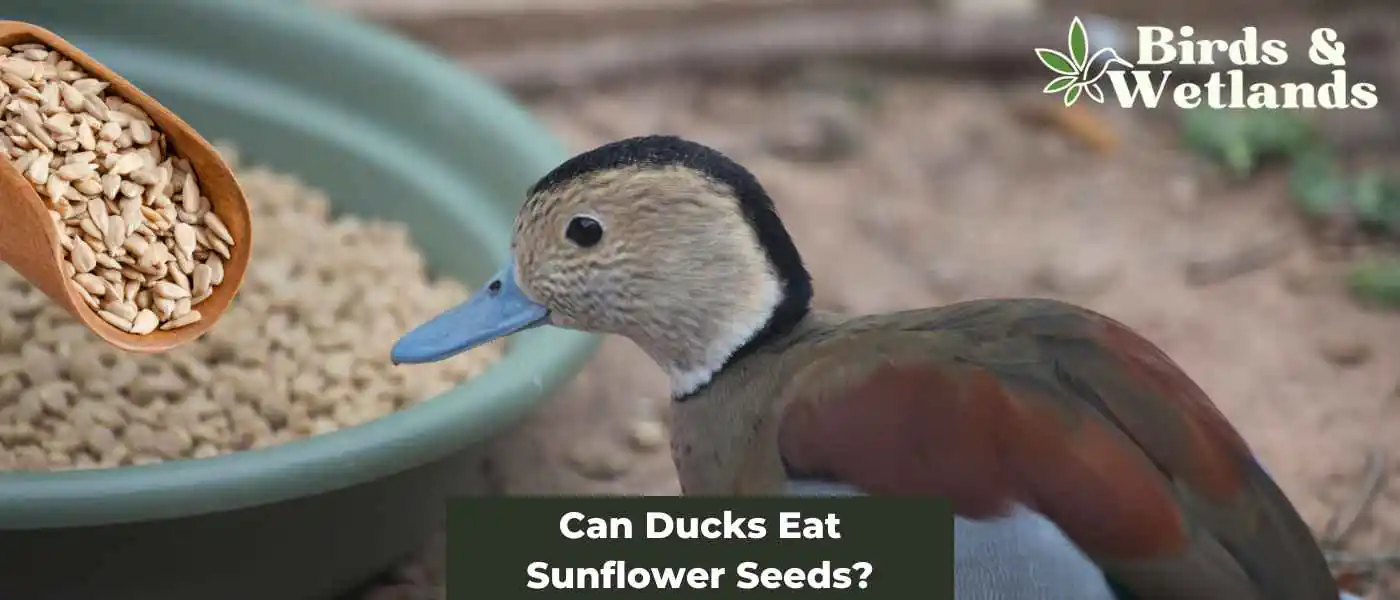Are you curious whether your feathered friends can chow down on sunflower seeds? Read on to find out!
Can ducks eat sunflower seeds?
Yes, ducks can eat sunflower seeds as they are a safe and nutritious food option. Sunflower seeds are rich in healthy fats, protein, vitamins, and minerals, which can contribute to a duck’s overall health. When offering sunflower seeds to ducks, it is best to provide them with hulled seeds, as the shells can be difficult for them to digest.
Key Takeaways on Can Ducks Eat Sunflower Seeds
- Sunflower seeds are a nutritious snack for ducks and can provide them with protein, fiber, and other essential nutrients.
- It is important to feed ducks sunflower seeds in moderation as they are high in fat and can cause health problems if overconsumed.
- Shelled sunflower seeds are easier for ducks to digest compared to unshelled ones, and it is recommended to avoid feeding them salted or flavored varieties.
- Sunflower seeds can be offered as a treat or supplement to a duck’s regular diet of commercial feed, vegetables, and insects.
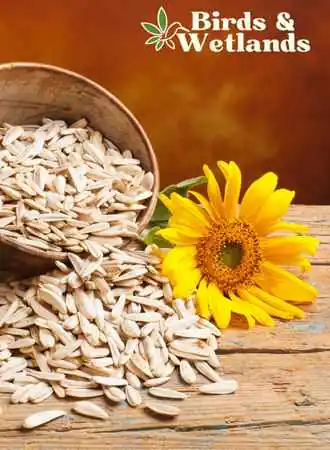
Are sunflower seeds good for ducks?
Sunflower seeds are an ideal food source for ducks. They are a great source of protein and healthy fat and provide vital vitamins, minerals, and other essential nutrients. In fact, many duck diets contain sunflower seeds due to all the nutritional benefits that they offer.
Ducks need foods high in protein to help keep up their energy levels, keep their feathers glossy, and have strong bones and muscles. They also contain good amounts of antioxidants, which help to protect the duck’s cells from damage caused by free radicals.
Additionally, sunflower seeds also contain Omega-3 fatty acids, which are important for healthy feathers, promote good eyesight and play a role in maintaining the health of cell membranes and supporting the immune system.
The vitamin E in sunflower seeds is important for proper functioning of many body systems, including the immune and nervous systems. In addition, vitamin E plays a role in maintaining the health of cells and tissues. It has antioxidant properties that can help protect the body against oxidative stress and damage.
What kind of sunflower seeds can ducks eat?
Feeding sunflower seeds to ducks is a good way for them to get protein and healthy fats. Here are the different kinds of sunflower seeds:
Black oil sunflower seeds
Black oil sunflower seeds are a type of seed that is incredibly popular with birds and other wildlife. They’re small and black, and they have a high-fat content, making them an ideal source of energy for many different types of animals
Salted sunflower seeds
Salted sunflower seeds are sunflower seeds that have been coated in salt. They are often sold as snack food and are commonly consumed by humans. Some people enjoy the added flavor of salt, while others find it too salty. Sunflower seeds can be salted before or after they are roasted.
Too much salt in ducks’ diet is bad and can lead to digestive system issues and other health problems.
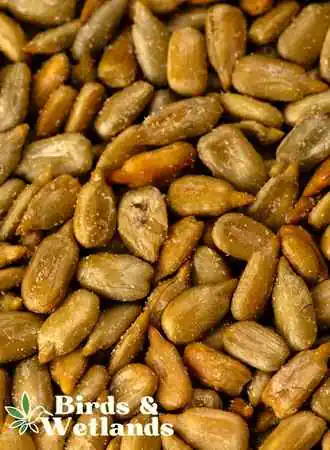
Unsalted sunflower seeds
Unsalted sunflower seeds are a nutritious, high-energy snack popular with people, but they can also be beneficial for young and adult ducks. They are better and healthier for ducks than salted sunflower seeds.
Hulled sunflower seeds
Hulled seeds, also known as “sunflower hearts,” are raw sunflower seeds that have had the outer shell, or “hull,” removed. The seeds inside are typically smaller and more tender than whole sunflower seeds and are easier for ducks to digest. These seeds are also called “processed sunflower seeds.”
Roasted sunflower seeds
Roasted sunflower seeds are sunflower seeds that have been roasted to enhance their flavor and texture. They come either salted or unsalted.
Do ducks eat sunflower shells?
Yes, ducks eat sunflower shells. These waterfowl have evolved to benefit from the nutrients in the shells and the natural fiber that helps them digest their food and maintain a healthy diet.
Moreover, sunflower seeds are incredibly high in protein – roughly 20% – making them an ideal meal choice for ducks of all ages. The entire shell is also packed with other essential vitamins, lipids and minerals.
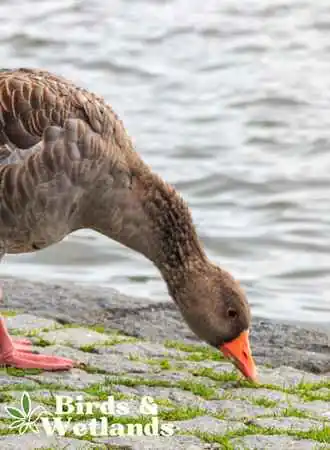
Can ducks digest sunflower seed shells?
Ducks can digest sunflower seeds with or without their shells. In fact, consuming the seeds with their shells can give ducks fiber, an important nutrient for their diet. Although it may be easier for ducks to digest shelled sunflower seeds, they can also consume seeds with husks safely.
Do ducks like eating sunflower seeds?
Ducks tend to have an eclectic diet, foraging for a variety of plants and animals in the wild. These aquatic birds love sunflower seeds because they are nutritious and give them a healthy snack.
Sunflower seeds are particularly appealing because they are easy to eat with their beaks, and their texture is not unlike that of other aquatic creatures ducks may come across while hunting.
Additionally, sunflower seeds can offer a cheap treat for pet ducks, encouraging healthy eating habits with a tasty treat!
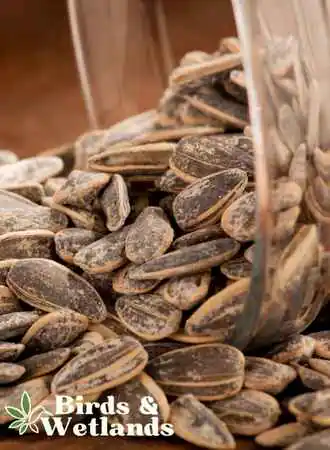
Can baby ducks eat sunflower seeds?
Offering young ducklings sunflower seeds as an occasional treat can be a fun way to give them an extra energy boost and help them stay healthy. Sunflower seeds contain essential fatty acids, proteins, dietary fiber, and vitamin E, all of which can help support healthy growth and development in young ducks.
It is important to remember to feed them in moderation and choose raw, shelled varieties rather than roasted or salted ones, which could potentially upset their delicate digestive systems.
Ducklings need proper nutrition. To maintain a well-balanced diet, mix the sunflower seeds with other safe grains such as rolled oats, barley, or wheat bran. The mix should be at most 25% sunflower seeds.
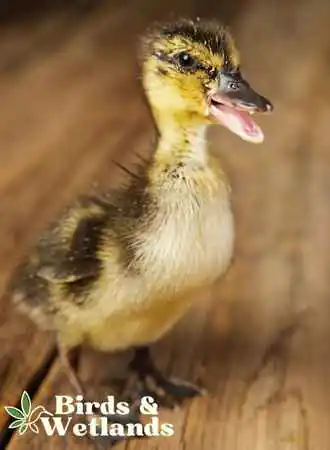
How often can ducks eat sunflower seeds?
When feeding ducks sunflower seeds, moderation is key. These seeds are a high-fat food source and can cause weight gain and even a fatty liver in ducks if they eat too many seeds.
Additionally, too many sunflower seeds in a duck’s diet can lead to nutrient deficiencies due to its low nutrient content compared with other food items such as fresh fruits, vegetables, grains, wet treats and commercial duck feed.
It is recommended to offer up to a couple of handfuls per week, split into two feedings of one handful each. Additionall, there should be no salt added to these seeds.
If your ducks seem to be asking for more, try supplementing their diet with other healthy treats such as oats or unprocessed wheat berries to make sure they get all the nutrients they need. Sunflower seeds should be offered as a nutritional supplement rather than a diet staple.
Don’t feed ducks moldy sunflower seeds because it is bad for the duck’s body.
What other seeds can ducks eat?
Bird seed mixes might not be the first foods that come to mind when feeding ducks. After all, ducks prefer aquatic plants, insects and invertebrates. However, these birds will not say no to a healthy treat.
Here are some of the seeds that are good for ducks along with their health benefits.
Sesame Seeds
Sesame seeds are tiny, oil-rich seeds native to sub-Saharan Africa and widely used in cooking and baking worldwide. They have a nutty, slightly sweet flavor and a crunchy texture, making them a tasty and nutritious snack for ducks.
But the benefits of sesame seed don’t stop at the taste. These little seeds are packed with nutrients that can benefit ducks in several ways.
For example, sesame seeds are a good source of protein, which is essential for the growth and repair of tissues in ducks. They also contain various vitamins, minerals and other nutrients, including iron and zinc, which help ducks maintain a healthy weight.
Vitamin B6 maintains the function of red blood cells and the nervous system in a duck. The extra calcium in these seeds can help improve egg quality and maintain bone health in ducks that will be laying eggs.
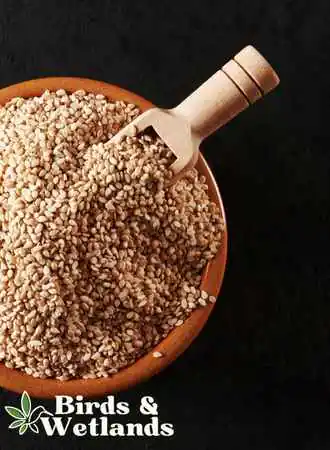
Pumpkin Seeds
Pumpkin seeds, also known as pepitas, are another tasty and nutritious seed that can be a great addition to a duck’s diet. Like sesame seeds, pumpkin seeds are a good source of protein and a variety of vitamins and minerals.
In particular, pumpkin seeds are a good source of zinc, which is important for the immune system and the growth and development of feathers. They also contain a range of antioxidants, which can help to protect ducks from the damaging effects of free radicals.
Pumpkin seeds are also high in fiber, which can help to support healthy digestion in ducks. Fiber is especially important for ducks prone to digestive issues, as it can help bulk up the stool and promote regular bowel movements.
Flax Seeds
Flax seeds, also known as linseeds, are small, golden or brown-colored seeds native to the Middle East and parts of Europe.
One of the key nutrients in flax seeds is omega-3 fatty acids, which are important for maintaining healthy skin and feathers in ducks. Omega-3s in the flax seed can also help to support the immune system and may have anti-inflammatory properties, which can be helpful for ducks with joint problems or other inflammatory conditions.
Hemp Seeds
Hemp seeds are small, nutty-tasting seeds from the hemp plant (Cannabis sativa). They are a good source of protein, iron, zinc, and vitamin E.
In addition to their nutrient content, hemp seeds are also a good source of fiber, which can help to support healthy digestion in ducks. They are also low in saturated fat, making them more nutritious than other seeds and fats.
Interestingly, hemp seed cakes are some of the foods given to ducks that are raised for meat production.
Watermelon Seeds
While watermelon is primarily known for its juicy, refreshing flesh, the seeds of this summertime fruit can also be a nutritious treat for ducks. Watermelon seeds are a good source of protein and a variety of vitamins and minerals, including iron, zinc, and magnesium.
One of the key nutrients found in watermelon seeds is lycopene, a powerful antioxidant that can help protect cells from the damaging effects of free radicals. Lycopene has also been shown to have anti-inflammatory properties, which can be helpful for ducks with joint problems or other inflammatory conditions.
Chia Seeds
Chia seeds are small, nutty-tasting seeds native to Central and South America and have gained popularity in recent years as a superfood. They have a crunchy texture and a slightly nutty flavor, making them a tasty and nutritious snack for ducks to enjoy. These seeds are known for their omega-3 fatty acids and fiber.
Similar Foods for Ducks
| Bread | Is Bread Safe for Ducks? |
| Rice | Can Ducks Enjoy Rice? |
| Oats | Feeding Ducks Oats |
| Sunflower Seeds | Sunflower Seeds: A Duck Treat |
| Bird Seed | Can Ducks Eat Bird Seed? |
| Corn | Can Ducks Eat Corn? |
Best Duck Feed Pellets
Are you a duck owner looking for the perfect feed to keep your feathered friends happy and healthy? Look no further than Purina Duck Feed Pellets! With their nutritionally balanced formula and high-quality ingredients, these pellets are the ultimate solution for providing your ducks with the nutrition they need to thrive.
Pros
- Complete Nutrition: Purina Duck Feed Pellets are nutritionally balanced to provide all the essential vitamins and minerals that ducks need to stay healthy and strong.
- Easy to Digest: The pellets are specially formulated to be easy to digest, which makes them ideal for ducks of all ages.
- Promotes Growth and Development: With its balanced nutrition formula, Purina Duck Feed Pellets are designed to support healthy growth and development in ducks.
- Suitable for All Breeds: Whether you have domestic ducks or wild ducks, Purina Duck Feed Pellets are suitable for all breeds of ducks.
- Trusted Quality: Purina has been producing high-quality animal feed for over 100 years, so you can trust that your ducks are getting the best possible nutrition with Purina Duck Feed Pellets.
Cons
- Cost: Compared to other types of duck feed on the market, Purina Duck Feed Pellets can be slightly more expensive. However, many customers feel that the high-quality ingredients and balanced nutrition formula are worth the extra investment.
- Pellet Size: Some customers have noted that the pellet size of Purina Duck Feed Pellets can be quite large, which may not be suitable for smaller or younger ducks. However, many customers have reported that the pellets can easily be broken up or soaked in water to make them easier to eat.

